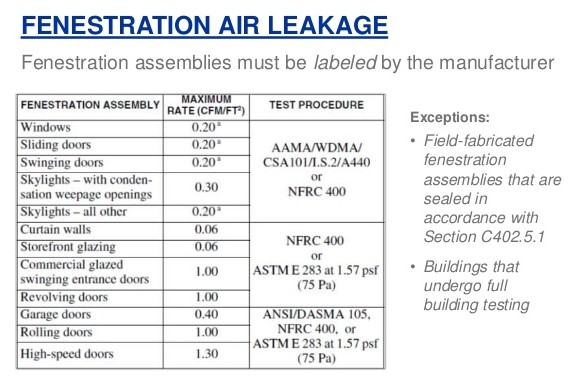

Cookson Blog
Welcome to the Cookson Blog! - Roll Up Door and Security Grille news - What's New?
SUBSCRIBE
Get updates on new blog posts to your inbox!
Extreme Energy Efficient Doors with Reliability & Longevity
Extreme Energy Efficient Doors with the Reliability and Longevity You Expect
 Design professionals and building owners are increasingly demanding products that meet and exceed code requirements, particularly any requirements having to do with energy savings. When it comes to insulated garage door cost, the focus on “green” is becoming more widespread, leading to changes in regulations, codes, green building rating systems, and building products. Specifically, code authorities have highlighted that reducing air infiltration and improving insulation is critical for improving performance of exterior energy efficient garage doors.
Design professionals and building owners are increasingly demanding products that meet and exceed code requirements, particularly any requirements having to do with energy savings. When it comes to insulated garage door cost, the focus on “green” is becoming more widespread, leading to changes in regulations, codes, green building rating systems, and building products. Specifically, code authorities have highlighted that reducing air infiltration and improving insulation is critical for improving performance of exterior energy efficient garage doors.
First, a few definitions.
- Air infiltration is defined as the unintended flow of air through cracks in the building envelope – particularly in and around window and door openings.
- Insulation is defined as a material’s resistance to conductive heat flow measured in terms of its thermal resistance.
- Code compliance can be defined in two ways when discussing energy savings: prescriptive and trade-off.
- The prescriptive compliance path means that a component must meet a specific level of performance.
- The trade-off compliance path allows for one component to fall short of the minimum level of performance that is outlined in the prescriptive path, but another component must “over perform” to offset the reduced level of performance of the other component.
A trade-off is designed to allow trades to be made between various parts of the building envelope. That said, a little-known fact is that this system of trade-offs is not allowed for air infiltration codes – all air infiltration codes must be met to the letter, no trade-offs allowed.
View Our Energy Efficient Doors
 International Energy Conservation Code (IECC)
International Energy Conservation Code (IECC)
The International Energy Conservation Code was created to address the design of energy-efficient building envelopes and the installation of energy-efficient mechanical, lighting, and power systems through requirements emphasizing performance. This code establishes minimum regulations for energy-efficient buildings using prescriptive and performance-related provisions. Its impact is widespread - many state and local governments have already adopted the IECC.
One area of particular interest to us is that its requirements reduce the allowable air infiltration rate for coiling doors. This can affect an insulated garage door cost depending upon whether or not the energy efficient overhead door meets the code. Section C402.5.2 requires that air infiltration for fenestration assemblies cannot exceed 1.00 cfm/ft2, and section C402.1.3 requires an R-value of 4.75.
For more information on R-value vs. U Factor, click here

ASHRAE (American Society of Heating, Refrigerating, and Air Conditioning Engineers)
The purpose of the ASHRAE 90.1 standard is to provide minimum requirements for the energy-efficient design of commercial buildings, including energy efficient garage doors. This standard also provides minimum requirements for the design and construction of new buildings and their systems, new portions of buildings and their systems, and new systems and equipment in existing buildings. It also provides criteria for determining compliance with these requirements. The provisions of this standard apply to the energy-efficiency of the building envelope, heating, ventilating, and air conditioning systems, service water heating, electric power distribution, motors and drives and lighting. ASHRAE 90.1 requires that air leakage for coiling doors cannot exceed an air leakage rate of 0.4 cfm/ft2. Section 5.5.3.6 lists the prescriptive building envelope U-factor of .31.
Code Adoption and Insulated Roll Up Doors

Building energy codes set minimum efficiency requirements for newly constructed and renovated buildings, providing energy savings and emissions reductions over their lengthy life spans. Building energy codes are intended to overcome market barriers, such as the builder typically not paying the energy bill for the building, or not having an incentive to include cost-effective measures that have a higher upfront cost. While the insulated garage door cost may increase slightly upfront, buildings built to code are more comfortable and cost effective to operate. The U.S. Department of Energy (DOE) participates in code development, adoption, and implementation processes; it contributes to new model energy codes by creating proposals based on publicly reviewed cost and technical analyses and then contributes to code adoption and implementation by providing technical assistance to states and localities, which includes the development and distribution of tools, materials, and analyses. As of September 2016, adoption is tracked based on a quantitative analysis of energy savings impacts within a given state. This provides a greater level of accuracy and replaces the previous approach, which was comprised of a simpler qualitative review of state code titles and provisions.
A few fun Energy Code facts:
- 7 states lack a statewide code
- 3 states are less energy-efficient than 90.1 – 2007
- 3 states 90.1 – 2007 or equivalent
- 23 states between 90.1 – 2007 and 90.1 – 2010
- 2 states 90.1 – 2010 or equivalent
- 6 states between 90.1 -2010 and 90.1 – 2013
- 3 states 90.1 – 2013 or equivalent
- 4 states more energy-efficient than 90.1 – 2013

For more information insulated roll up doors as well as the most energy efficient commercial doors available and how you can benefit from them or if you have a specific solution you need to solve, contact us today.

Cookson continues to lead in innovations in roll up door, security gate and closure products. To inquire how Cookson’s experts and customer service can help you with your next roll up door project, call 1-800-294-4358





